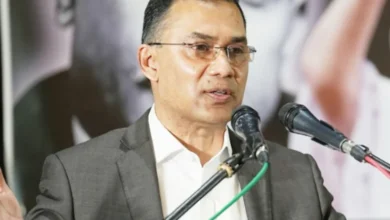“Can Timelines Be Imposed?” President’s Big Question To Supreme Court
President Droupadi Murmu inquired whether a Governor's exercise of constitutional discretion can be made justiciable and referred to Article 361 of the Constitution.

New Delhi:
A month following the Supreme Court landmark judgment in the Tamil Nadu case, which practically put a timeline on the President and Governors to clear Bills tabled by the legislature, President Droupadi Murmu has sent a letter to the top court and inquired if Governors could be subject to timelines.
President Murmu has requested the opinion of the Supreme Court under Article 143 of the Constitution, which empowers the President to refer legal matters or questions of public importance to the court.
“Is the Governor fettered by the aid and advice offered by the Council of Ministers in exercising all the alternatives open to him where a Bill is tabled before him under Article 200 of the Constitution of India?” the President inquired from the Supreme Court.
President Murmu inquired whether a Governor’s exercise of constitutional discretion is justiciable — that is, subject to a trial by a court. She referred to Article 361 of the Constitution, which stated that the President or the Governor shall not be called upon to answer for the exercise of the powers and duties of office in any court of law.
“Where there is no constitutionally-mandated timeline and how the powers of the President have to be exercised, can there be imposition of timelines and prescription of how the powers of exercise should be done through judicial orders for exercising discretion by the President under Article 201 of the Constitution of India?” President Murmu asked the Supreme Court to seek its view.
In April, a division bench headed by Justice JB Pardiwala and Justice R Mahadevan had employed the special powers of the court to settle a showdown over hung Bills between Tamil DMK government and Governor RN Ravi. The court declared that the refusal of the Governor to assent to 10 Bills was “illegal and arbitrary” and ordered the President and Governors to clear legislatures’ secondarily passed Bills within three months.
The judgment also said the President must consult the courts on constitutional matters.
The bench held if the issue is related to policies, the Supreme Court can decline to give its advisory opinion. “The exercise of a self-imposed restraint by the court in issues involving purely political considerations is in consonance with the doctrine of political thicket, that is, the courts do not delve into the areas of governance where the Constitution provides a prerogative only to the executive.”
“But in some exceptional situations, the Governor can reserve a bill for President’s consideration on the grounds that the bill is dangerous to the democratic principles and an interpretation of the Constitution is required to find out if such a legislation is to be accorded assent or not. In such situations when a bill has been reserved primarily on grounds of being not in line with the constitutional principles and questions of constitutional validity arise, the executive is to exercise restraint,” it added.
“It is hoped that the Union executive would not presume the role of the courts to decide the vires of a bill and must, as a practice, refer such question to the Supreme Court under Article 143. We have no hesitation in saying that the executive hands are bound in dealing with exclusively legal issues of a bill and only the constitutional courts possess the prerogative to examine and make recommendations with regard to the constitutionality of a bill,” the judgment observed.
The order emphasized that the court is mindful of the “non-binding nature” of the its advisory jurisdiction. “But just because the jurisdiction under Article 143 is not binding does not vitiate the principles applied by this Court to decide on the constitutionality of the bill,” it stated.
The order mentioned that the “only reason” why the legislative or the executive wing might not pay attention to the view of the Supreme Court “is when the reasons on which a State bill was reserved for the consideration of the President, are not strictly legal but also include certain policy considerations, which might outweigh the question of constitutionality”. “In such situations, if the President is acting in contradiction to the opinion of this Court and refuses to give assent to a bill, he shall record reasons and material that support not giving assent,” the order stated.
It is now the prerogative of the Supreme Court whether it constitutes a Constitution bench to examine the question raised by the President or reaffirms its previous two-judge bench’s ruling. This is at a time when the premier court has acquired a new chief in Chief Justice of India BR Gavai, who swore in yesterday.






